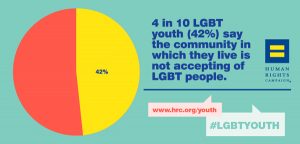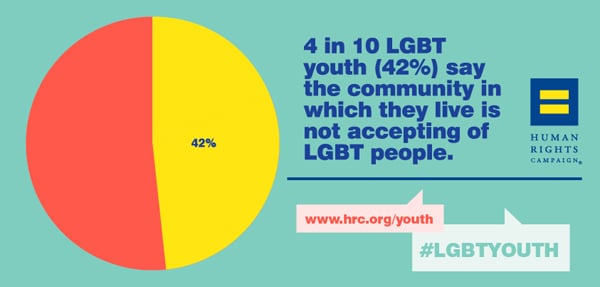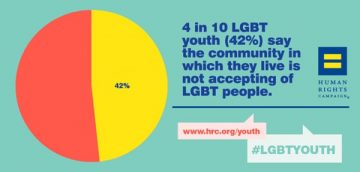“queer PTSD”
“queer mormon PTSD”
“queer mormon women PTSD”
Oh wait, I forgot to add the part with ADHD.
“queer mormon women ADHD PTSD”
It’s kind of funny that I forgot the ADHD part, huh? Well, I guess it would be funny if I wasn’t already writing this post 5 hours later than I should have, because I forgot it was my turn to post on The Exponent…
* * *
What do we do these days? We Google. When I Googled the terms above earlier this morning, I found multiple articles claiming that queer people are more likely to experience PTSD, even that it “comes with the territory“. Then I went to Google Scholar and looked for some concrete findings I could base my post on. There are not as many connections in the research as I would hope. I could not find anything looking at the intersection of being queer, Mormon, and being diagnosed with ADHD. ADHD stands for “Attention Deficit Hyperactivity Disorder”, and PTSD stands for “Post-traumatic Stress Disorder”, both of which are from the The Diagnostic and Statistical Manual of Mental Disorders or DSM-5 (5th ed.; DSM–5; American Psychiatric Association, 2013).

I found several infographics that show the vulnerabilities queer youth face here. I found behavioral health national statistics here. They speak for themselves, and give ample future reference for posts I will write here.
Then, I found this. The term “identity incongruity” is perfect.
Two of the most unstable domains involved in identity formation, the religious and sexual domains, come into conflict when vulnerable populations of the lesbian, gay, bisexual and transgender community experience oppression from the indoctrination of religious beliefs that persecute their sexual orientation. This conflict, aptly termed identity incongruity in this article’s discourse, results in a schism that adversely affects these vulnerable populations. This paper investigates the roles of religion, spirituality and available institutional solutions to propose customized, culturally adapted, contextually based and collaborative community-level interventions that would facilitate the reconciliation of the conflicting identity domains.
I thought of growing up Mormon. My identity was incongruent. Square peg, round hole.
So I have some questions for you, dear readers. I hope some of you will answer, especially if you identify in any way as a gender and/or sexual minority, queer, or LGBTQIA+. Think of identity incongruity, how it creates conflict in those who feel it, and answer me these questions:
What does that do to young people in the church?
What did that do you you as a child growing up in the church?
How can the church make it better?
How can we make it better as people that are now grown?
Feel free to add more questions in the comments below.






8 Responses
One of my greatest frustrations/sorrows with Mormonism today is how narrow it feels. It could be so wide and expansive, but instead of allowing for a broad array of experiences, identities, and stories, we only allow for a single story (or a very narrow spectrum of stories within a single married-heterosexual-cisgendered script).
And I love that you pointed out that Mormonism doesn’t just have a certain set of beliefs and leave it at that, but that it actually provides “the indoctrination of religious beliefs that persecute[s] [a person’s] sexual orientation.” Our policies and “doctrines,” as they stand, do violence to queer people. We need to own that and repent of it before we can really make any headway.
I feel awkward being the first to comment on this post as a cis-hetero woman, but I’m hoping others (particularly those whose opinions you solicited) will comment, too.
I didn’t grow up in the church; I converted at 18. I had wondered about my sexuality and kind-of-sort-of identified as bisexual before my baptism. Once I joined the church, I must have made a decision somewhere along the line to focus on being attracted to men and not act on any feelings that I had for women. My mission president was extremely focused on getting all of his missionaries to eventually marry in the temple. I could feel that one of many underlying assumptions governing my mission was that members were straight. I’m pretty sure that in my mission president’s opinion, any who “struggled with same-sex attraction” were ACTUALLY straight underneath that devilish deception (please read my sarcasm here).
A few years of trying to shove myself into a Mormon box finally stopped working for me when I got back from my mission and discovered that I am STILL a feminist and STILL more attracted to women than I am to men.
I’ve come to the point where it feels pretty much impossible to be all of myself within Mormonism. I would love to exist in a church where I can hold on to the beautiful parts of Mormonism without feeling like I need to sacrifice major parts of my identity. The church can start by getting rid of policies that target gay couples/individuals and/or their children. I really feel for local leaders who would love to be more accepting but feel that their hands are tied by awful policies. Policy, doctrine, and culture are so intertwined that it’s really difficult to think of a good way to tackle this.
I agree that Policy, Doctrine and Culture are intertwined. They are also quite separate in reality.
Culture has no place in a serious discussion about how one should live their life in the Gospel of Jesus Christ. It is for that very reason that there was a “Great Apostasy” and the need for a Restoration. You speak of “Mormonism”. The Church of Jesus Christ of Latter-day Saints boils down to the Gospel of Jesus Christ – not a cultural ism.
The problem for the Church is that the Gospel of Jesus Christ is not in harmony with “the Philosophies of Men”. Over time, and for very good reasons, society has become so accepting of homosexual activity that same sex marriage is now legal in many countries, and in many others same sex co-habiting is at least legal. I personally have no real problem with this, as a civil matter. I do have a problem with it in a Gospel of Jesus Christ context. The New and Everlasting Covenant includes the marriage of a man and woman, as constituted in the beginning. At no time, in any dispensation, has anything other than this been mooted. So for the Plan of Salvation to work it requires male/female sealing. The Church can not shy away from this Doctrine in favour of Culture – that’s how infant baptism got started – along with a great many other changes in Doctrine.
Here is an equally difficult problem, but one which we have no problem with how we deal with it. There are people born with exactly the same level of attraction as gay people have to the same sex but to children. I don’t understand it, and society can’t understand it, and as such we forbid it – quite rightly. As a Church we not only forbid it, we put annotations on the records of members with this problem so that they can not be a danger to children in the Church – we limit them. They, not being able to have a proper relationship with an adult can not marry, can not be sealed. But Culture says this is OK, so we are happy with it. And we figure, if this person can live their life without molesting a child, fulfil the responsibilities they have, and endure to the end, God will bless them in the Resurrection.
I figure the same for those with same sex attraction. Society’s acceptance of something does not mean we should change our Doctrines to include them. In some parts of the world marrying a 12 year old is acceptable (mostly in places where marry a person of the same sex is not), but that doesn’t make it right.
I know this is hard, but I don’t see a way out of it.
NB – I am not equating consensual same sex sexual activity with non-consensual (by definition) adult/child sexual activity. I am however saying that both have a similar, in built, disposition towards their orientation.
Hi Andrew,
I agree with you that the church should boil down to the gospel and not to culture. I love that idea, but I find that in practice it is rarely so. Culture and what we define as doctrine tend to inform each other.
I can understand why the church doesn’t want to marry gay couples in its own religious ceremonies. If you say that civil marriage does not cause you any problems, then what would the harm be in allowing civilly married gay couples to participate more fully in the church? It saddens me to think that I may be excommunicated for having a relationship with a woman. If I do marry a woman, the policies of the church will hang over an already complicated decision. My loyalties will feel pulled and tested in painful ways (with respect to the church), and looming excommunication will only serve to worsen that. Being attracted to women feels just as natural to me as I’m sure it does to straight men.
I appreciate your note that you are not equating consensual same sex relations with child abuse. That being said, it seems to me that your argument can only function fully if you do in fact equate the two. By comparing the two things, I worry that you draw dangerous parallels. This seems to imply that being gay – or acting on feelings of same sex attraction – is something that should not be acceptable (like the child abuse that you mentioned). The line between hating the sin and hating the sinner is a very fine one. When it comes to issues of sexuality, it is even finer. To me, a condemnation of “same sex sexual activity” feels like a condemnation of myself, my preferences, etc. It’s comments like these that make it very difficult for me to participate in church.
We say that BEING gay is not the problem; it’s ACTING on being gay. This is slight progress from the church’s earlier, more intense homophobia. Still there remains an implication that being gay is wrong.
“I can understand why the church doesn’t want to marry gay couples in its own religious ceremonies. If you say that civil marriage does not cause you any problems, then what would the harm be in allowing civilly married gay couples to participate more fully in the church?”
The fact that the Gospel of Jesus Christ only recognises, for the purposes of Church participation, marriage between a man and a woman. Accepting the idea of a legal same sex marriage is not the same as accepting it as the same for the purposes of eternal progression. The Gospel of Jesus Christ is about eternal progression, it is not about satisfying all of our carnal (natural woman/man) desires. As such the law of chastity is broken in a same sex marriage. I can recognise the marriage as legal, and I am happy to celebrate the union as a commitment. However, it is not ordained of God and as such sexual activity in that marriage is breaking the law of chastity. That is my understanding of the Doctrine. And we should not change doctrine based on what the world defines as correct, or what we feel our bodies, minds and hearts telling us.
My point with a person attracted to children is that they feel exactly the same way about their attraction as a gay person does. They could not be with an adult. However, it is not (quite rightly) socially accepted and so we do not have an issue with calling it what it is, a sin.
Let’s consider something that is partially socially acceptable – in that some people think it is OK. Swinging, or open marriages. What if, as a couple, my wife and I want to involve another couple in our sexual activity. It is perfectly legal, should it be allowed? What if the couple I want to involve is the stake president and his wife? Some people just can’t be monogamous – it is built into them, just like being attracted to the same sex?
I am truly sorry for those who have to suffer with all of these problems. I do not know why it is the case, but I do know that we all have to suffer with things that we want to do, need to do, but are not allowed to do.
We do not excommunicate alcoholics, but we do not allow them to have a temple recommend – this could mean them never being endowed. Should we, since drinking alcohol is socially acceptable repeal the Word of Wisdom as a test of temple worthiness so as to allow people with alcohol dependency to be endowed?
It is difficult, I personally know people who have left the Church, but who know it is true, because they wanted to act on their homosexual desire. Heartbreaking. But I have also known people who left the church because they wanted to cheat on their wife too, equally heartbreaking. In both cases there was a Law and a Choice.
It’s conversations like these that made the church too psychologically damaging of a place for me. I am too tired of it all to respond to this. I wish you well.
I am a gay woman in the Church. I have met with bishops, stake presidents, a general authority emeritus, and a general relief society counselor for the church to talk about being gay and in the Church.
And, I received conflicting statements and “help” from several. Among other things, I have been told to lie to keep my temple recommend; that I should live a quiet gay life in the Church and no one need know; I have been told that I am NOT gay and that I should find a man, marry him and have lots of sex. I found each of those statements to be, in their own way, contemptible and offensive.
I have many other thoughts and experiences but I do not want to make my comment into a book so I shall so here. Thank you for the questions you asked and thank you for wanting to know some of our thoughts and experiences as it relates to bring LGBT and in the Church.
Duck, I’m so sorry for your experiences. How humiliating, and as you said, offensive. I’m sorry.